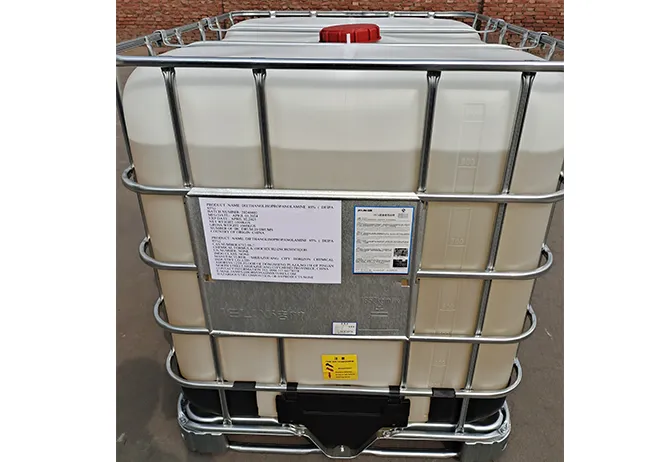
preservative ins 202
Understanding Preservative INS 202 Applications and Implications
In the modern world of food technology, preservatives play a crucial role in extending the shelf life of products, ensuring safety, and maintaining quality. One commonly used preservative is INS 202, also known as potassium sorbate. This article will delve into the applications, sources, safety, and regulatory aspects of INS 202, offering insight into its importance in food preservation.
What is INS 202?
INS 202 is the designation given to potassium sorbate, a chemical compound that is the potassium salt of sorbic acid. Originating from sorbic acid, which is naturally found in some fruits, potassium sorbate possesses antimicrobial properties, making it effective against mold, yeast, and certain bacteria. It is widely used in the food industry as a preservative, thanks to its ability to inhibit the growth of spoilage organisms.
Applications of INS 202
INS 202 finds extensive use across various food and beverage sectors. Some of its primary applications include
1. Baked Goods Potassium sorbate is often used in breads, cakes, and pastries to prevent mold and extend softness. It helps maintain freshness without altering taste significantly.
2. Dairy Products In the dairy sector, INS 202 can be found in products like cheese, yogurt, and sour cream, where it prevents the growth of molds and yeasts, enhancing product shelf life.
3. Beverages Juice and wine manufacturers utilize potassium sorbate to stabilize their products and prevent fermentation, especially in sweetened beverages.
4. Condiments and Sauces Many sauces, salad dressings, and marinades incorporate INS 202 to protect against spoilage and maintain flavor integrity.
preservative ins 202

5. Cosmetics and Personal Care Products Beyond food, potassium sorbate is also used in cosmetics and lotions to prevent microbial growth, ensuring safety and longevity.
Safety and Regulatory Status
The safety of food additives like INS 202 is a paramount concern for consumers and regulatory agencies alike. Studies have shown that when used within the recommended limits, potassium sorbate is safe for consumption. Various health organizations, including the U.S. Food and Drug Administration (FDA) and the European Food Safety Authority (EFSA), have evaluated potassium sorbate and deemed it safe at low concentrations.
However, like any food additive, some individuals may experience allergic reactions or sensitivities to potassium sorbate. Common symptoms include headaches, skin rashes, or gastrointestinal disturbances. Consequently, food manufacturers are required to include explicit labeling to inform consumers of the presence of preservatives like INS 202.
Environmental and Health Considerations
As society becomes more health-conscious, there is a growing interest in natural alternatives to synthetic preservatives. Potassium sorbate, while deemed safe, faces scrutiny as consumers increasingly prefer products with minimal chemical additives. This trend has led to the exploration of natural preservatives, such as rosemary extract or vinegar, prompting some manufacturers to reformulate their products accordingly.
Moreover, there are discussions about the environmental impact of chemical preservatives. While INS 202 is not regarded as harmful to the environment in its standard use, responsibly managing food waste remains a critical concern in the industry. Reducing spoilage through the effective use of preservatives can contribute to sustainability efforts by minimizing food waste.
Conclusion
INS 202, or potassium sorbate, is an essential preservative in today’s food and beverage industry, effectively extending the shelf life of numerous products while maintaining safety. While its use is generally regarded as safe, it highlights the ongoing dialogue surrounding food additives, consumer preferences, and environmental impacts. As the industry evolves, balancing the need for preservation with consumer demands for natural and clean-label products will shape the future of food technology. Understanding preservatives like INS 202 is imperative for both consumers and manufacturers in ensuring the safety and quality of food products.
-
Understanding Synthetic Rubber OptionsNewsApr.27,2025
-
Trichloroisocyanuric Acid: Essential for Clean and Safe WaterNewsApr.27,2025
-
Sodium Dichloroisocyanurate: Key to Safe Water TreatmentNewsApr.27,2025
-
Sodium Acid Pyrophosphate: Essential in Modern Food ProcessingNewsApr.27,2025
-
Essential Water Treatment ChemicalsNewsApr.27,2025
-
Denatured Alcohol and Its Industrial UsesNewsApr.27,2025
-
The Versatile Uses of Sodium BicarbonateNewsApr.24,2025
Hebei Tenger Chemical Technology Co., Ltd. focuses on the chemical industry and is committed to the export service of chemical raw materials.
-

view more DiethanolisopropanolamineIn the ever-growing field of chemical solutions, diethanolisopropanolamine (DEIPA) stands out as a versatile and important compound. Due to its unique chemical structure and properties, DEIPA is of interest to various industries including construction, personal care, and agriculture. -

view more TriisopropanolamineTriisopropanolamine (TIPA) alkanol amine substance, is a kind of alcohol amine compound with amino and alcohol hydroxyl, and because of its molecules contains both amino and hydroxyl. -

view more Tetramethyl Thiuram DisulfideTetramethyl thiuram disulfide, also known as TMTD, is a white to light-yellow powder with a distinct sulfur-like odor. It is soluble in organic solvents such as benzene, acetone, and ethyl acetate, making it highly versatile for use in different formulations. TMTD is known for its excellent vulcanization acceleration properties, which makes it a key ingredient in the production of rubber products. Additionally, it acts as an effective fungicide and bactericide, making it valuable in agricultural applications. Its high purity and stability ensure consistent performance, making it a preferred choice for manufacturers across various industries.











